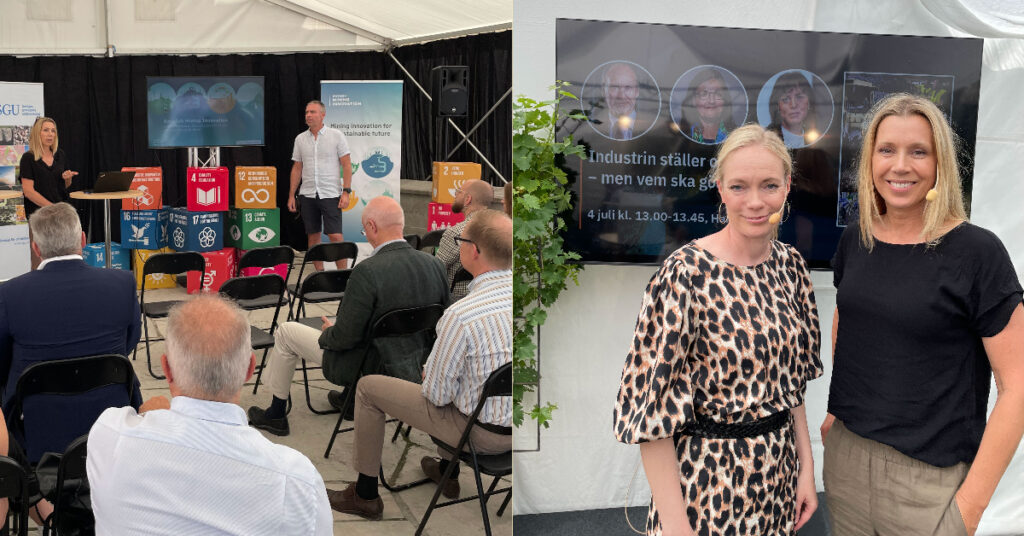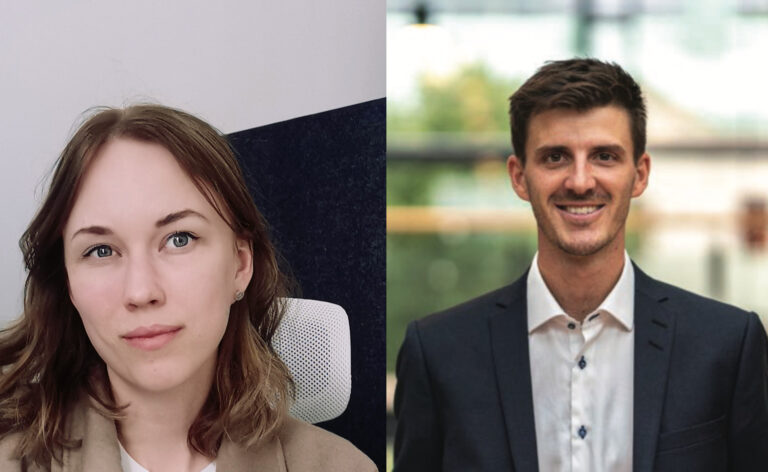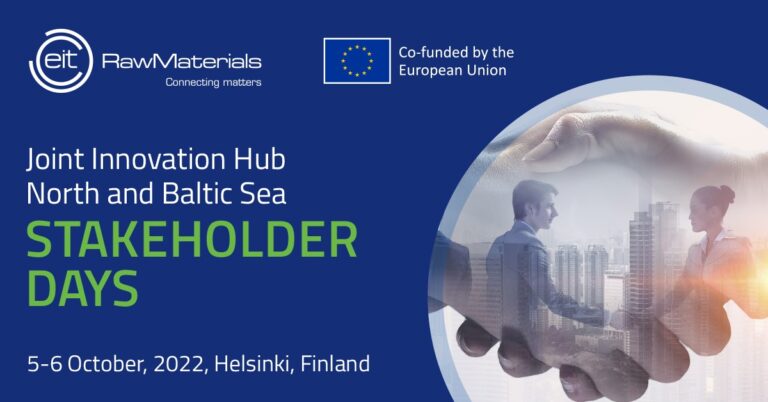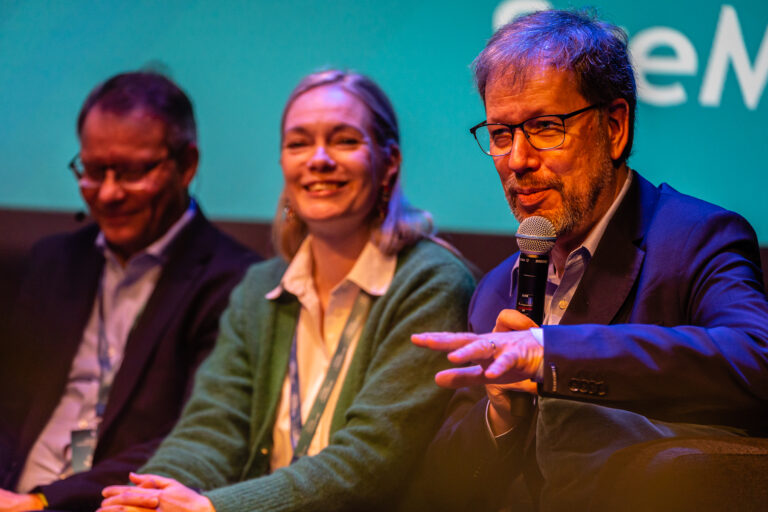Sweden’s foremost event and forum for policy debate, the Almedalen week, is over. We asked Swedish Mining Innovation programme director, Jenny Greberg to summarize the key take-aways.
Do we have the energy for this?
Right now, the Swedish political debate on energy revolves around the pros and cons of different technologies and sources of energy (nuclear, hydrogen, wind power etc) as well as the geopolitical question about self-sufficiency. Meanwhile, among the business and academic representatives, the combination of different technologies, grid capacity and resilience as well as increasing the pace of investment in renewable energy are top-of-mind issues. On the mining and metals scene, developing technologies and processes that enable use resources more efficiently, and preferably at the same time consume less energy, is crucial.
Circularity
Fact: By 2050, recycled metals will at most cover 15-26% of the societal demand for metals. So, recycled metals alone will not produce enough to cover what we need to build the technologies that enables the green transition. It’s clear that mining cluster needs to work even harder to increase the awareness about this issue among decision-makers, politicians and media.
Green tech – powered by people
“Without the right people in place, the industry will not be able to develop the innovations that are necessary” – that’s how one industry representative summed up the demand for talent attraction in Sweden over the coming years. The debate on how Sweden should secure the talent and skills encompasses everything from attractive living environments to educational opportunities at all levels and ages. Peter Larsson, the government’s coordinator, believes that the public sector has about five years to succeed in creating the right conditions for the industrial investments to actually trickle down to the societal growth and demographic shift that everyone is hoping for. We hope the competence roadmap that we launched with Svemin, competence roadmap that we launched together with trade associations Svemin, Indudstriarbetsgivarna and Jernkontoret on Monday becomes an asset for politicians and decision-makers within the educational system.
Knowledge is power. And power comes with responsibility.
The general awareness of minerals and metals and their importance for the green transition has increased significantly compared with previous years. There is a broad consensus between politics and business that fossil-free industry is not just crucial to tackle the climate crisis, but also a clear competitive advantage internationally. In the national research and innovation agenda for the mining and metal producing industry that we presented earlier this year, you can read about the most important priorities for getting there.
Yes, the eyes are on Sweden – right now.
One of Sweden’s most critical challenges right now is to tighten national collaboration and blur boundaries between regions and industries. There is a demand among stakeholders for coordination and cooperation within industry clusters such as Swedish Mining Innovation. Inspired by recent examples in northern Sweden where public sector officials and business representatives have successfully cut lead time for new investments, stakeholders want more alignment within the various actors in the public sector and with the business sector as well as systems for sharing lessons and know-how between regions and sectors.
The strongest take-away of all is that we must safeguard the democratic conversation – regardless of Almedalen or elsewhere. Our thoughts are with relatives, friends and colleagues of Ing-Marie Wieselgren, who was attacked and killed at Almedalen.







